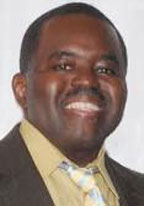By Roger Caldwell
“Distribution of wealth has always been a major issue in the United States. According to the Brookings institution, Black Americans would hold $12.68 trillion in household wealth if the nation’s wealth was distributed by population size. Instead, Black households held just $2.54 trillion in 2020.”
The wealth gap exists as a result of slavery, discrimination, and centering of historical injustices. Black financial literacy is a must in 2024, and it starts with budgeting, investing, borrowing, and taxation.
The median White household’s net worth is 10 times the size of the median Black household’s net worth. There are many diverse reasons this exist in America, but the blame must start with Black people talking to each other. Black men are supposed to be the leaders in the household, but they are the worse in the country with financial literacy.
Financial literacy is the possession of the basic skills needed to manage an income, keep debts in control, spend wisely, and invest for the future. It is extremely difficult to stay on top of your financiers, because everything is always changing, and bills are always increasing. Credit cards take discipline, and if you are not paying attention, they will become a new form of slavery.
“African American household generally don’t know as much about money and financial literacy compared to mainstream and upper middle-class White communities,” says Teri Williams, president of OneUnited Bank, a Black-owned bank that has a mission to improve financial literacy in urban communities.
Around the country, Black religious leaders have partnered with banks to teach economic gospel through churches. “We have a captive audience in the Black churches on Sunday morning. Millions of people hear the Gospel preached and also learn how to pay the bills, pay the mortgage and hold on to their housing,” says the Rev. Jonathan L. Weaver.
Education is the name of the game, and banks, schools and churches in the community are working to teach consumers real –life lessons about managing money. When Black people get their hands on $100,000, they have no idea what to do with that kind of money. Instead of investing the money, they spend the money feverishly on cars, trips, parties, and very soon the money is gone.
20% of Black people don’t have bank accounts, and the money is kept under their mattresses, because that was the way mom did it. Mom did not trust banks, and there was never enough money to go around.
“I knew there had to be a way to understand how to make and save money –but no one was teaching me that in my Atlanta schools,” rapper 21 Savage wrote in an August 2020 op-ed for Time Magazine. The rapper notes the persistence of myths surrounding wealth and distrust of financial institutions acts as hurdles to closing the racial wealth gap.
Closing the wealth gap starts with a financial advisor and getting educated on financial literacy. In 1989, Congressman John Conyers Jr of Michigan introduced a bill to study reparations for African Americans for centuries of slavery, segregation, and racial injustice. Similar bills have been introduced in every Congress since then, but none have made it to the House floor.
Closing the wealth gap will take work, education, and leadership. The entire Black community must work together to close the wealth gap and we must trust each other.

